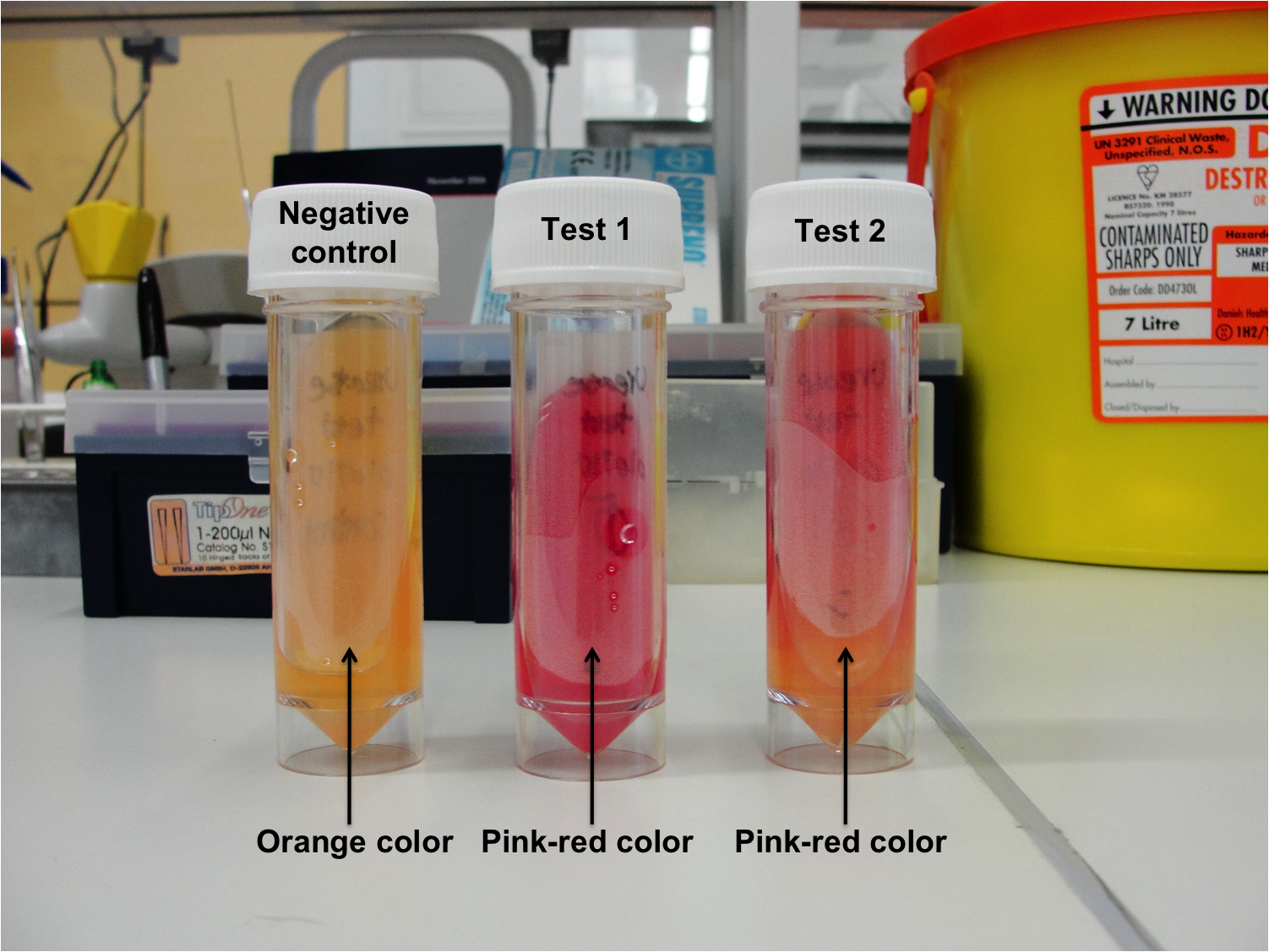Team:Newcastle/2 July 2010
From 2010.igem.org
(Difference between revisions)
| Line 15: | Line 15: | ||
===Conclusion=== | ===Conclusion=== | ||
| - | + | ''B. subtilis'' 168 is able to produce urease, therefore, urea which is the substrate and can be found in the agar was degraded, which results in ammonia building. The ammonia makes the media alkaline and therefore the indicator phenol red will change from orange color to pink-red color. | |
| + | |||
| + | The negative control did not turn pink-red color, therefore indicating that no contamination had occurred. | ||
{{Team:Newcastle/footer}} | {{Team:Newcastle/footer}} | ||
Revision as of 14:37, 21 July 2010

| |||||||||||||
| |||||||||||||
Contents |
Aim of this experiment
The aim of this experiment was to determine if Bacillus subtilis 168 is able to produce urease and to degrade urea.
Urease test
The experiment was performed in 010710. For the experimental protocol, please see 010710 lab notebook.
Results
|Figure 1: Urease test results
- Negative control - No color change (Orange color)
- Test 1 (Duplicate) - Pink-red color
- Test 2 (Duplicate) - Pink-red color
Conclusion
B. subtilis 168 is able to produce urease, therefore, urea which is the substrate and can be found in the agar was degraded, which results in ammonia building. The ammonia makes the media alkaline and therefore the indicator phenol red will change from orange color to pink-red color.
The negative control did not turn pink-red color, therefore indicating that no contamination had occurred.
 
|
 "
"
